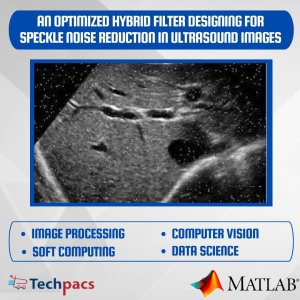A Hybrid Optimization Approach for Enhanced MPPT in Solar PV Systems
Problem Definition
In the domain of renewable energy systems, the problem of efficiently extracting Maximum Power Point (MPP) from solar panels and wind turbines persists due to the presence of large oscillations that reduce overall effectiveness. While researchers have introduced Ant Colony Optimization (ACO) techniques for MPPT, limitations have been identified that hinder its performance. The sluggish convergence rate and tendency to get stuck in local minima pose significant challenges in achieving optimal results. Moreover, the dependence on constant values α and β in the ACO model introduces further complexities, with a specific requirement of α equaling 1.5 for improved outcomes.
However, deviations from this value, such as α becoming -1.5, can lead to algorithm freezing and limited adjustments, particularly in scenarios with fewer cities and more load demands. Additionally, the model's inefficiency in powering loads during no sunlight or wind conditions highlights the need for enhancements in the existing MPPT techniques for renewable energy systems.
Objective
The objective of this project is to address the inefficiency in Maximum Power Point Tracking (MPPT) techniques used in solar panels and wind turbines by proposing a novel approach. The aim is to optimize the gain value of the Fractional Order Proportional-Integral-Derivative (FOPID) controller using a hybrid approach that combines the Whale Optimization Algorithm and the Particle Swarm Optimization algorithm. By integrating these optimization methods, the goal is to improve the efficiency of power generation models and ensure a consistent power supply to loads even under suboptimal environmental conditions.
Proposed Work
In this project, we address the issue of inefficient Maximum Power Point Tracking (MPPT) techniques used in solar panels and wind turbines by proposing a novel approach. The existing literature has identified the drawbacks of the Ant Colony Optimization (ACO) technique which includes slow convergence rate and being stuck in local minima. To overcome these limitations, we introduce a FOPID controller-based MPPT algorithm. Our objective is to optimize the gain value of the FOPID controller using a hybrid approach that combines the Whale Optimization Algorithm and the Particle Swarm Optimization algorithm. By utilizing hybrid optimization methods, we aim to improve the efficiency of power generation models and ensure that adequate power is supplied to loads even when environmental factors are not optimal.
The proposed work involves the integration of Whale optimization algorithms (WOA) and Particle Swarm Optimization (PSO) model with a Fractional Order Proportional-Integral-Derivative (FOPID) controller for better MPPT in solar PV systems. The hybrid optimization methods aim to overcome individual drawbacks of WOA and PSO, such as slow convergence rate and tendency to get stuck in local minima. By using the hybrid WOA-PSO algorithm, the gain values of the FOPID controller are optimized, thereby enhancing the dynamic response of the system and extracting maximum power from solar panels. The primary goal of this project is to provide an effective and efficient MPPT solution that can improve the overall performance of renewable energy systems in generating electricity.
Application Area for Industry
The proposed solutions in this project can be applied across various industrial sectors where solar panels and wind turbines are utilized for power generation. Industries such as renewable energy, agriculture, telecommunications, and transportation can benefit from the improved MPPT techniques using hybrid optimization methods like WOA and PSO. The challenges faced by these industries, such as inefficient power generation, slow convergence rates, and getting stuck in local minima, can be addressed by implementing the proposed solutions. By optimizing the parameters of the FOPID controller with the hybrid WOA-PSO algorithm, industries can extract maximum power from their solar panels and wind turbines, ensuring a reliable and consistent power supply even in fluctuating weather conditions. Overall, the application of these solutions can lead to increased efficiency, reduced energy costs, and improved performance in various industrial domains.
Application Area for Academics
The proposed project can significantly enrich academic research, education, and training in the field of renewable energy systems. By introducing a new and effective Maximum Power Point Tracking (MPPT) method using hybrid optimization techniques, researchers, MTech students, and PhD scholars can gain insights into innovative research methods, simulations, and data analysis within educational settings.
The relevance of this project lies in enhancing the efficiency of power generation systems by overcoming the limitations of existing MPPT techniques. The use of hybrid optimization methods such as Whale Optimization Algorithm (WOA) and Particle Swarm Optimization (PSO) coupled with a Fractional Order Proportional-Integral-Derivative (FOPID) controller offers a novel approach to extracting maximum power from solar panels and wind turbines.
Researchers can explore the application of FOPID, WOA, and PSO algorithms in optimizing the performance of renewable energy systems, leading to advancements in the field of energy harvesting technologies.
MTech students can utilize the code and literature of this project to further their understanding of hybrid optimization techniques and their application in real-world scenarios.
Moreover, PhD scholars can delve deeper into the optimization algorithms used in the proposed model and explore avenues for improving the dynamic response and efficiency of power generation systems. This project provides a valuable opportunity for academic research in renewable energy systems and can serve as a foundation for future studies in this domain.
In conclusion, the proposed project offers a platform for academic research, education, and training by introducing innovative MPPT techniques using hybrid optimization methods. It presents a practical approach to improving the efficiency of renewable energy systems and opens up new possibilities for exploring advanced research methods in the field of energy harvesting technologies.
Reference future scope: Future research can focus on expanding the application of hybrid optimization techniques in other renewable energy systems such as biomass, hydro, and geothermal power generation. Additionally, the integration of artificial intelligence and machine learning algorithms can further enhance the performance and reliability of MPPT methods in renewable energy systems.
Algorithms Used
The proposed work in this project involves the utilization of hybrid optimization methods that combine Whale optimization algorithms (WOA) with a Particle Swarm Optimization (PSO) model to track the Maximum Power Point (MPP) in solar PV systems. The main purpose of these hybrid optimization methods is to overcome their individual limitations and enhance the overall efficiency of the power generation model. Additionally, a Fractional Order Proportional-Integral-Derivative (FOPID) controller is employed to improve the dynamic response of the system, with its optimal gain values being optimized by the hybrid WOA-PSO algorithm. By integrating WOA and PSO together, issues such as slow convergence rates and getting stuck in local minima can be mitigated, allowing for more efficient tuning of the FOPID controller parameters and maximizing power extraction from solar panels.
Keywords
SEO-optimized keywords: Solar panel reliability, MPPT, Maximum Power Point Tracking, Hybrid energy storage, Fuel cell, Capacitors, Batteries, Energy storage systems, Renewable energy, Solar power, Energy storage technologies, Energy management, Energy efficiency, Power electronics, Power generation, Power system stability, Grid integration, Smart grids, Sustainable energy, Energy storage optimization, Artificial intelligence, Ant Colony Optimization, ACO, Whale optimization algorithms, WOA, Particle Swarm Optimization, PSO, FOPID controller, Solar PV systems, Hybrid optimization methods, Power generation model, Dynamic response, Convergence rate, Local minima, Maximum power extraction
SEO Tags
MPPT, Maximum Power Point Tracking, Solar panel reliability, Hybrid energy storage, Fuel cell, Capacitors, Batteries, Renewable energy, Solar power, Energy storage systems, Energy management, Power electronics, Power generation, Smart grids, Sustainable energy, Energy storage optimization, Artificial intelligence, Hybrid optimization methods, Whale optimization algorithm, WOA, Particle Swarm Optimization, PSO, FOPID controller, Renewable energy sources, Grid integration, Energy efficiency, Power system stability, Ant Colony Optimization, ACO technique, Convergence rate, Local minima, Energy extraction, Solar panels, Wind turbines.
| Shipping Cost |
|
No reviews found!

















































No comments found for this product. Be the first to comment!